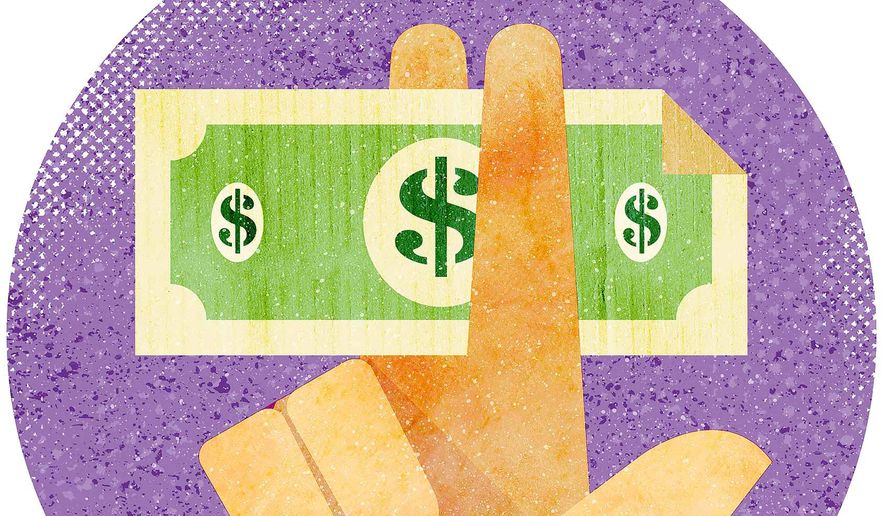OPINION:
Debates over the minimum wage are typically framed as a battle between employees and owners. This year, proponents of a one-size-fits-all approach discovered the distinction isn’t that clear.
Sen. Bernie Sanders’ proposal raises both the regular wage floor and the separate minimum wage for tipped workers (e.g. servers and bartenders) to $15 an hour. The change for tipped workers represents a more than 600% increase over the current hourly base wage of $2.13.
While critics misleadingly suggest the tipped wage is “sub-minimum,” when it comes to paychecks the opposite is true. Tipped workers are legally-guaranteed to earn the same minimum wage as other employees. Census Bureau data shows they report earnings at twice the minimum with many at $25 an hour or more.
Traditional restaurant tipping systems are the restaurant version of sales commissions, only better. One of the best-known commissioned jobs is new car sales. A good salesperson can spend hours with a potential buyer, but the promise of a commission never materializes if the buyer goes elsewhere. When they do close a deal, the commission makes up for that previously lost effort.
In a restaurant, almost every guest pays their server a tip “commission” for service in addition to the cost of dining. Compare that 15% to 20% tip commission to the 4% or 5% profit the restaurant owner earns on the same sale. As a part-time server while in law school, I was able to pay my tuition, rent and support my family on tip income. That is hardly a sub-minimum wage job.
The consequences of moving away from this system are unfavorable for employees. Forcing restaurant owners to raise employee base pay by as much as 600% will pressure prices to rise. And in order to control the higher cost of the meal, many owners would establish a no-tipping policy while paying the higher hourly wage.
Many have tried the system. They generally fail because employees lose. In 2015, famed New York City restaurateur Danny Meyer announced he would go for higher prices and higher guaranteed wages coupled with a no-tipping policy at many of his restaurants. By 2017, New York magazine reported Mr. Meyer’s experiment was struggling; despite unusually high wages (one competitor with this no tipping model was paying $25 an hour), up to 40% of his veteran staff had left given their steep income loss from no tipping. Last year, Mr. Meyer scrapped this approach and brought back lower prices and tipping.
Not surprisingly, tipped employees have loudly protested against state-imposed changes to the tipped wage system. In Maine, Michigan, New Mexico, Virginia, Washington, D.C., New York and elsewhere, servers vocally objected to proposals that would eliminate the lower tipped minimum wage. They appeared at hearings and demonstrations, sent letters and made phone calls to legislators. Collectively, there were thousands who objected. Their voices were heard.
Despite employee opposition, there continues to be professional agitators who claim greater knowledge about employee compensation and running restaurants than the servers who work in them. One such group, which immodestly calls itself the Restaurant Opportunities Center (ROC), tried to run its own model NYC restaurant to show the proposed changes could work. The restaurant failed. It then reopened and closed again. Permanently. ROC has even been sued by its own workers over unpaid wages.
Mr. Sanders and his allies should take a tip from tipped employees: Leave well enough alone.
• Richard Berman is president of Berman and Co. in Washington, D.C.




Please read our comment policy before commenting.